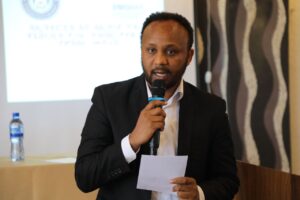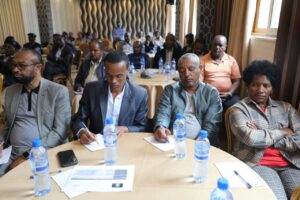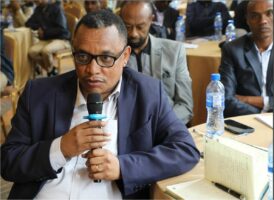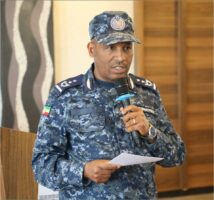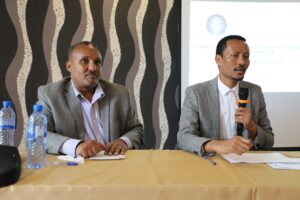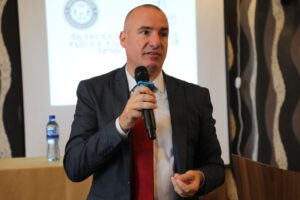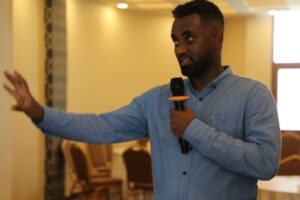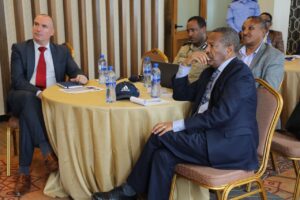Strengthening Ethiopia’s crime response plan
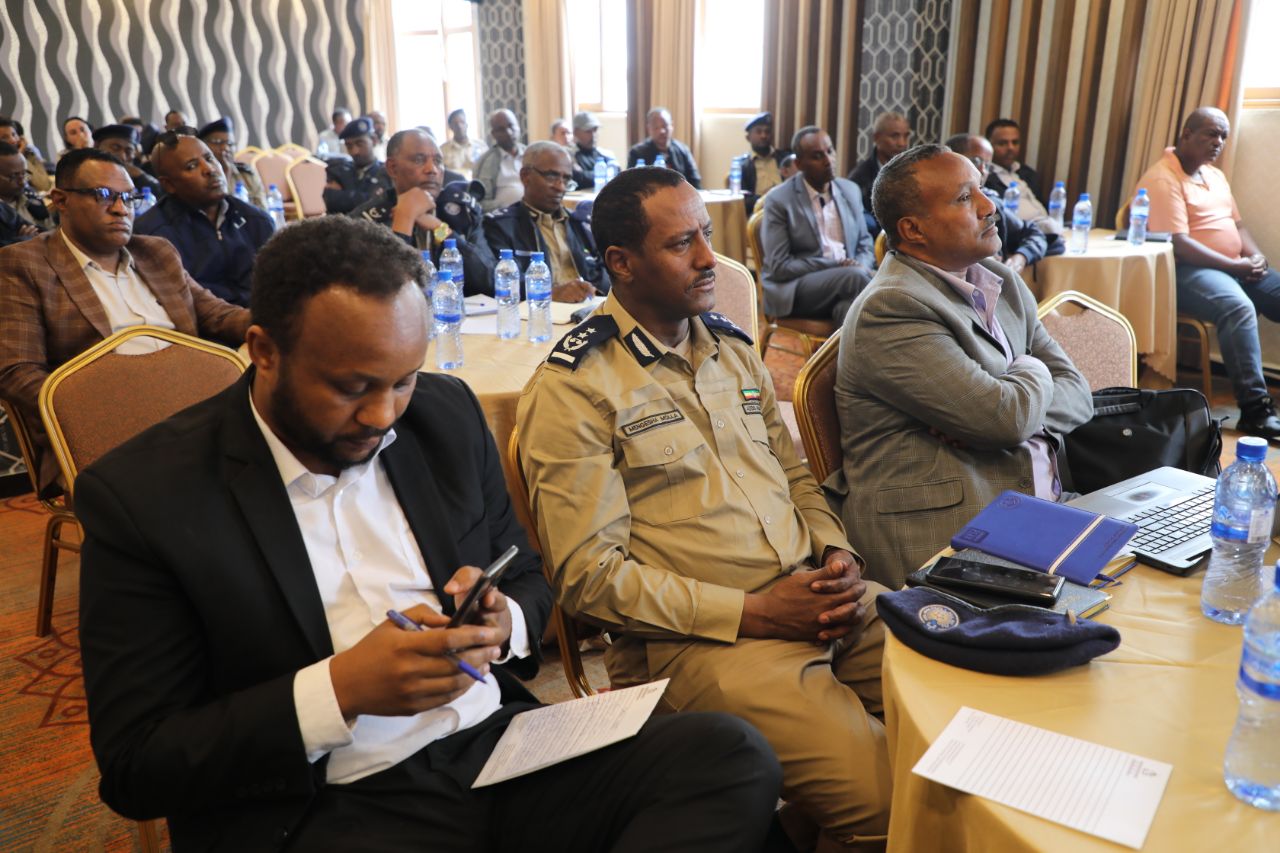
The relationship between the police and the citizens in Addis Ababa has been characterised by mutual mistrust and hostility.
Building on efforts from the ratification of the country’s first ever Police Doctrine in 2021 to improve police-community trust and professionalising the police, Interpeace’s trust-building programme is enhancing the trust between communities and the police by promoting collaborative problem-solving skills. The programme employs the four-stage SARA (scan, analyse, respond, and assess) problem-solving methodology to promote the active and genuine participation of people, community groups, and police officers in detecting, prioritising, and addressing community-level problems. Currently, the programme is in the response phase, in which communities and the police department have formulated a response plan to address the primary causes of crime and disorder in the four woredas (district-level administrative units).
In early November, Interpeace convened a consultative meeting to brief and receive feedback on the response plan from all key stakeholders, including senior commanding officers from Addis Ababa Police Commission (AAPC), Ethiopian Police University (EPU) utility companies, municipality authorities, members of the Inter Africa Group (IAG), NWP, and community representatives. The consultative meeting had three major objectives. First, by engaging all relevant stakeholders, the meeting aimed to promote enabling conditions for the successful execution of the response plans across the four woredas. Second, collecting feedback on the response plan. And finally, the meeting served as a major learning and experience-sharing platform, where EPU and Interpeace communicated findings and progress of the trust-building project to key stakeholders.
The forum was also used to gain invaluable feedback from participants, which will be used to improve the programme.
One of the participants of the meeting, Misrak , a member of the IAG in woreda 10, said.
"I have been living in the Kolfe neighbourhood for many years. I have seen the police service across different governments, and this is the first time I have ever sat at the same table with the Addis Ababa Police Commissioners to talk about peace. This is simply amazing," she said.
She said the local police used to invite them to attend meetings at the community level to discuss community problems. However, in many instances, community members had a limited voice to decide on matters that affected their wellbeing. It was the police who decide everything, including setting the agenda, defining problems, and addressing problems.
The Interpeace trust-building programme, funded by the Government of the Netherlands, has developed crucial activities to help the police employ innovative approaches to community engagement and problem solving. The communities are now sitting down and having a genuine discussion with the police in the course of identifying and prioritizing problems at the neighbourhood level.
Another resident, Henok Tesema, said: "I am now feeling that the police, at least at the Ketena level, can listen to my concerns. Although there are still many problems in the police service in our woreda, I would like to acknowledge the initial progress brought by the programme, and I am hopeful that this will be expanded to other woredas and sub-cities so that the police will be more democratic, inclusive, and responsive to communities."
Largely, the consultative meeting was successful on all three fronts, gaining the commitment of the senior police officers present. The commanding officers, utility companies, and municipality all expressed their commitment to the successful implementation of the response plan.
